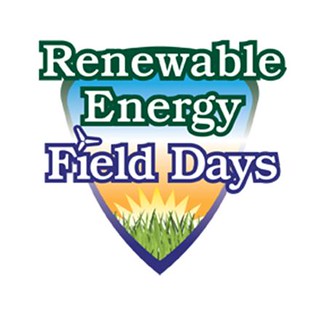 Hundreds of people, over the web or in person, learned about the financing and technology ofanaerobic digester systems, the subject of a pair of webinars recently hosted at the University of Wisconsin-Madison. A broad spectrum of individuals participated including academics, farmers, and representatives of the environmental community.
Hundreds of people, over the web or in person, learned about the financing and technology ofanaerobic digester systems, the subject of a pair of webinars recently hosted at the University of Wisconsin-Madison. A broad spectrum of individuals participated including academics, farmers, and representatives of the environmental community.The webinars, addressing two critical issues in renewable energy production specifically anaerobic digesters, were part of the Renewable Energy Education Field Days Program. The program is a series of courses targeted to landowners, community leaders, and dairy farmers that focuses on the multiple issues involved in renewable energy production—from feedstock production and refinery conversion technologies to handling, storage, legal and financial issues. The programs provide information useful in deciding whether to implement renewable energy technology in their operation.
The first webinar, Financing a Anaerobic Digester System, showcased dairy farmers and community leaders who shared their first-hand experiences in financing, installing, and maintaining digester systems. Commercial and private lenders also spoke of their experiences in financing digester operations. Topics included return on investment, private funding, government/private partnership funding options, cost of construction, potential revenue generation streams, avoided environmental costs, tax incentives and cost of operation, including management and labor costs.
Technical Aspects of Anaerobic Digester Systems was the title of the second webinar. This session examined digester technologies–psychrophilic (covered lagoon), mesophilic (plug flow and completely mixed), and thermophilic (completely mixed). Farmer/operators discussed why they selected a specific technology for their operation, as well as their operational and management experiences with those technologies.
The webinars were organized in collaboration with Farm Foundation, USDA Rural Development, USDA Office of Energy Policy and New Uses, the U.S. Environmental Protection Agency,Innovation Center for U.S. Dairy and the Wisconsin Bioenergy Initiative of the University of Wisconsin.
The webinars originated from the Pyle Center at the University of Wisconsin, Madison.
For more information about USDA’s energy programs, click here.
No comments:
Post a Comment
Note: Only a member of this blog may post a comment.